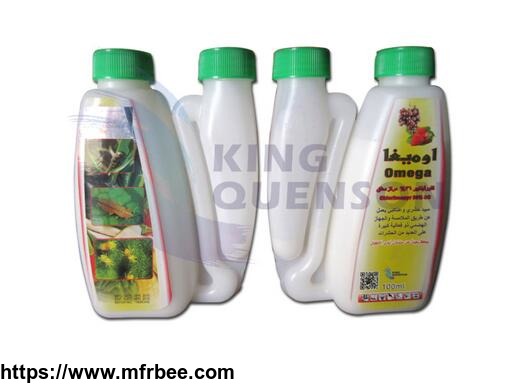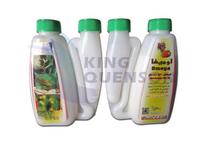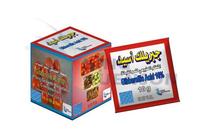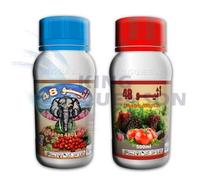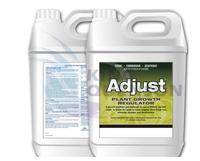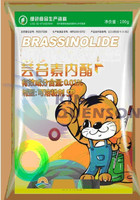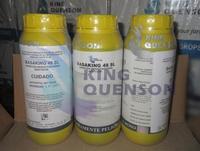Insecticide Chlorfenapyr
Product Quick Detail
- FOB Price
- USD $12.00 / Piece
- Minimum Order
- 1
- Place Of Origin
- 12
- Packaging
- 12
- Delivery
- 15 Days
Specifications
Chlorfenapyr
Common name
Chlorfenapyr
Chemical name
4-BROMO-2-(4-CHLOROPHENYL)-1-(ETHOXYMETHYL)-5-(TRIFLUOROMETHYL)-1H-PYRROL-3-CARBONITRILE
CAS No
122453-73-0
Molecular formula
C15H11BrClF3N2O
Application
Control of many species of insects and mites, including those resistant to carbamate, organophosphate and pyrethroid insecticides and also chitin-synthesis inhibitors, in cotton, vegetables,
citrus, top fruit, vines and soya beans. Among pests resistant to conventional products which are controlled by chlorfenapyr are Brevipalpus phoenicis (leprosis mite), Leptinotarsa decemlineata
(Colorado potato beetle), Helicoverpa spp., Heliothis spp., Plutella xylostella (diamond-back moth) and Tetranychus spp. Also control of many species of structural and household Formicidae
(especially Camponotus, Iridomyrmex, Monomorium, and Solenopsis), Blattellidae (especially Blatta, Blattella, Periplaneta and Supella spp.), Kalotermitidae (especially Incisitermes) and
Rhinotermitidae (especially Reticulitermes, Coptotermes, Heterotermes) at use rates of between 0.125 to 0.50% a.i. w/w.
Formulation type
10% sc,240g/l sc, 360g/l sc
Package:
Liquid: 200Lt plastic or iron drum,
20L, 10L, 5L HDPE, FHDPE, Co-EX, PET drum
1Lt, 500mL, 200mL, 100mL, 50mL HDPE, FHDPE, Co-EX, PET bottle
Shrink film, measure cap
Solid: 25kg, 20kg, 10kg, 5kg fiber drum, PP bag, craft paper bag,
1kg, 500g, 200g, 100g, 50g, 20g Aluminum foil bag.
Carton: plastic wrapped carton
The package can be made as the customer’s requirement.
Storage Stability
Stable for 2 years after receipt of order if stored under recommended conditions. After 2 years, the compound should be re-analyzed for chemical purity before use.
http://www.kingquenson.net
- Country: China (Mainland)
- Business Type: Trading Company
- Market: Africa
- Contact: Mr marketing
